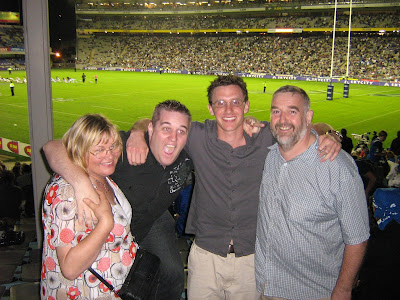Dispatch: New Zealand
Through an Oakland University study abroad program, I taught 4th and 5th grade at Sunnyvale Primary School in New Zealand. These are reflections and memories from my experiences. My experience was professionally and personally rewarding: I learned new teaching strategies, developed my listening skills and adapted my lifestyle to live and work in a new environment. As a result, I have become a more confident, well-rounded and self-reflective educator.
I was challenged to teach all subjects, including swimming, fitness, art, sport and music. I had to listen carefully to different accents. Many words we use in the United States have different meanings or do not exist in New Zealand’s vocabulary.
For example, if I asked a student to place a “period” at the end of a sentence, they had no idea what I was talking about. In New Zealand, a period is called a “full stop.” If I asked a student to pull out an eraser, they would call it a “rubber.” Soccer is a word unique to New Zealand and America: we are the only countries that use it to describe the game we love.
Americans learn “opposites” when they travel to New Zealand. You walk on the left side of the sidewalk and drive on the left side of the road. The driver’s side of the car is on the right. I walked into many people, always questioned myself about which direction a car was going and entered the car on the driver’s side when I was not even driving.
As I lived with my assistant principal and her family who emigrated from Scotland, I never had the opportunity to drive. She provided any transportation that I needed.
The country’s population of about 4 million is one-third European, one-third Pacific Islander and one-third native Maori. In every direction are mountains, and in a short drive you can be at beaches on the Pacific Ocean or on the Tasman Sea which separates New Zealand from Australia. America’s film industry has recently discovered its beautiful landscape.
Almost everyone I met had traveled to another country. They are knowledgeable and aware of the United States and have a lot of respect for us because they recognize that the decisions we make affect their economy and well-being. They watch U.S. television shows and movies and read U.S. books and magazines.
New Zealand’s environmentally conscious society suffers from the depleting ozone layer, and its residents easily develop skin cancer. Photovoltaic arrays and buildings with more windows make use of sunlight. Roads and cars are smaller and more fuel-efficient. Where there is a garbage can, there is likely to be a recycling can.
If you have the opportunity, I highly recommend traveling to this beautiful country.





Comments
Post a Comment